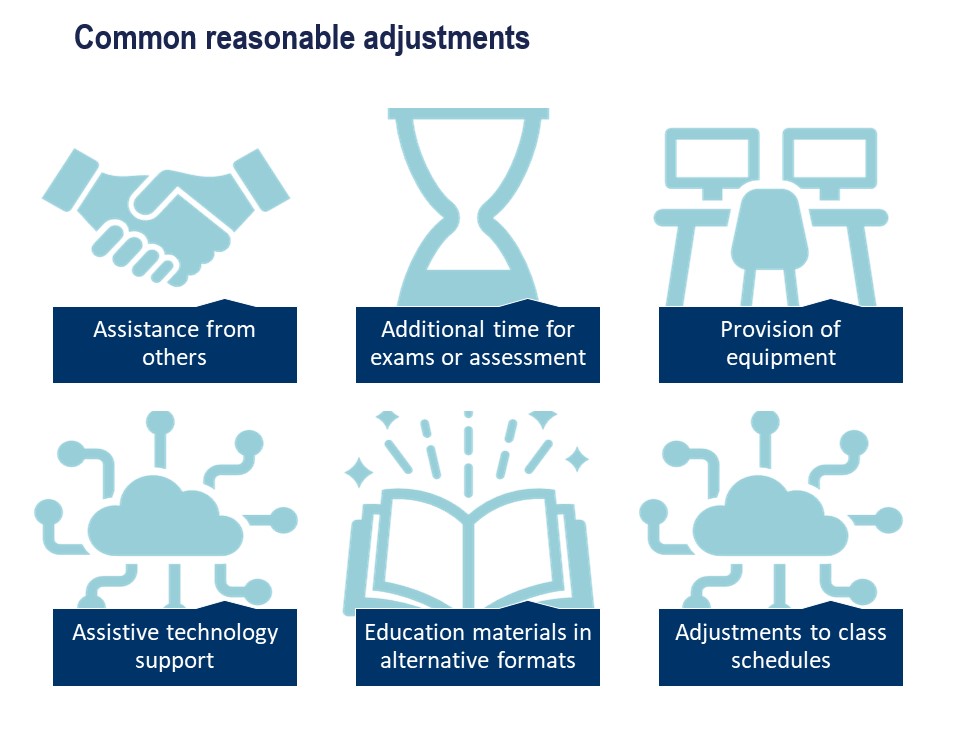Reasonable Adjustments: Disability Specific
As a student with disability or health condition in the post-secondary education sector you may be entitled to receive adjustments and support from your education provider. These are called reasonable adjustments.
Reasonable adjustments refer to a “measure or action taken to assist a student with disability to participate in education and training on the same basis as other students”1
They are designed to address the impact of disability on learning. The do not provide an unfair advantage.
These adjustments are developed in consultation with your education provider, often through a Disability Practitioner or Disability Adviser. These adjustments will be based on your particular needs, addressing any potential impact of your disability or health condition, may have on your learning activity. This means they may change over the course of your studies. These reasonable adjustments are usually included on a Learning Access Plan.
Figure 1 lists some common reasonable adjustments. Below this image are disability specific adjustments.

You will find different disability specific adjustments under the following disability types.
- Acquired Brain Injury (ABI)
- ADD and ADHD
- Autism Spectrum Condition
- Blind and Vision Impaired
- Deaf and Hard of Hearing
- Health Conditions
- Intellectual Disability
- Intellectual Disability (easy read)
- Long COVID
- Multiple Chemical Sensitivity
- Mental Health
- Physical Disability
- Specific Learning Disability
For information on assistive technology support visit our Assistive Technology page for students

